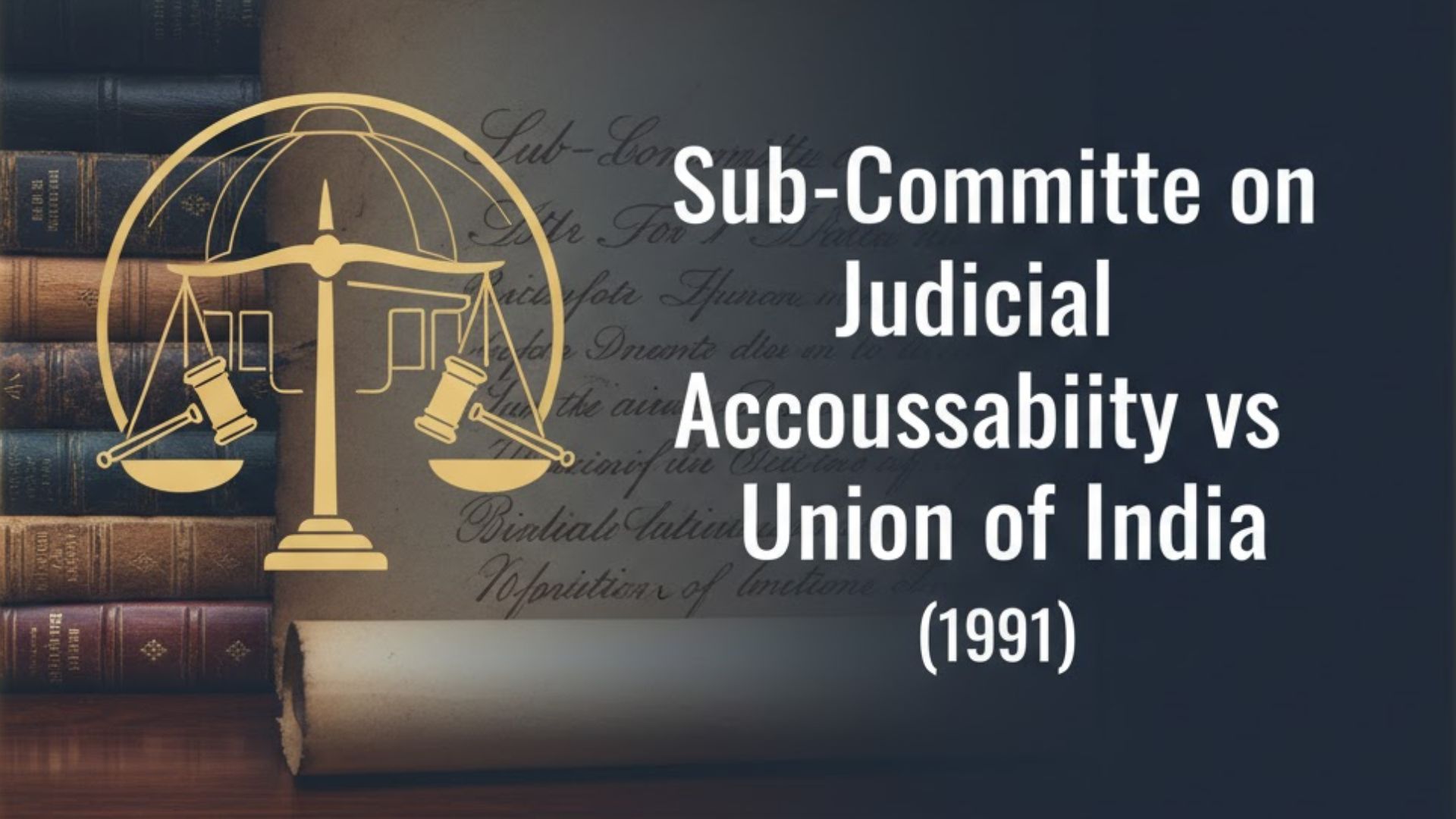
Case Summary: Sub-Committee on Judicial Accountability vs Union of India (1991)
Citation Stats: (1991) 05 SC CK 0019 | AIR 1991 SC 1598 | (1991) 2 JT 493 | (1991) 1 SCALE 902 | (1991) 3 SCC 65 | (1991) 2 SCR 741 | (1991) 2 UJ 194
Court: Supreme Court of India
Bench: Full Bench – S. C. Agrawal, J; M. N. Venkatachaliah, J; L. M. Sharma, J; J. S. Verma, J; B. C. Ray, J
Date of Decision: 08-05-1991
Final Decision: Disposed Of
[Judgment Source]
https://www.courtkutchehry.com/Judgement/Search/AdvancedV2?docid=273339
Facts of the Case
The Sub-Committee on Judicial Accountability, a body of advocates, challenged the validity and implementation of the Speaker of the Lok Sabha admitting a notice of motion by 108 Members of Parliament under Article 124(5) read with the Judges (Inquiry) Act, 1968. The motion sought to constitute an Inquiry Committee to investigate allegations of misconduct against a sitting Supreme Court Judge concerning his tenure as Chief Justice of the Punjab and Haryana High Court. The writ petition sought directions for the Union Government to provide facilities to the Committee and for the Chief Justice of India to refrain from allocating judicial work to the Judge under inquiry.
Law Points Raised
1. Whether a motion for judicial inquiry survives the dissolution of the Lok Sabha.
2. Whether the Union Government is constitutionally bound to facilitate the functioning of the Inquiry Committee.
3. Whether the Chief Justice of India should withhold judicial work from a Judge facing inquiry.
4. Interpretation of 'actual service' for Judges serving on the Inquiry Committee without presidential notification.
Acts / Provisions / Articles Referred
• Constitution of India – Article 124(5)
• Judges (Inquiry) Act, 1968
• Second Schedule to the Constitution – Part D, Para 9, Para 11(b)(i)
Judgements Referred
Not specifically cited; principles derived from constitutional provisions and prior judicial interpretations.
Obiter Dicta
The Supreme Court emphasised the importance of maintaining public confidence in the judiciary and clarified that non-issuance of interim orders should not be seen as hindering the Inquiry Committee's functioning if it chooses to proceed.
Ratio Decidendi
The matter involved substantial constitutional questions requiring expeditious final hearing. The Court directed day-to-day hearing to conclude within ten working days, declining to pass interim orders, but clarified that its stance should not impede the Committee's proceedings.
Final Ruling
The writ petition was disposed of with directions for expedited hearing starting July 9, 1991. No interim relief was granted, but the Court did not prevent the Inquiry Committee from continuing its work.
Relevant Paragraph Numbers
Paras: 2, 4, 5, 6, 7.
Summary
This case dealt with the constitutional process of judicial accountability under Article 124(5). The Supreme Court avoided interim intervention but ensured that the matter would be heard promptly, preserving the integrity of judicial inquiry while addressing procedural concerns about dissolution of the Lok Sabha.
[Judgment Source]
https://www.courtkutchehry.com/Judgement/Search/AdvancedV2?docid=273339